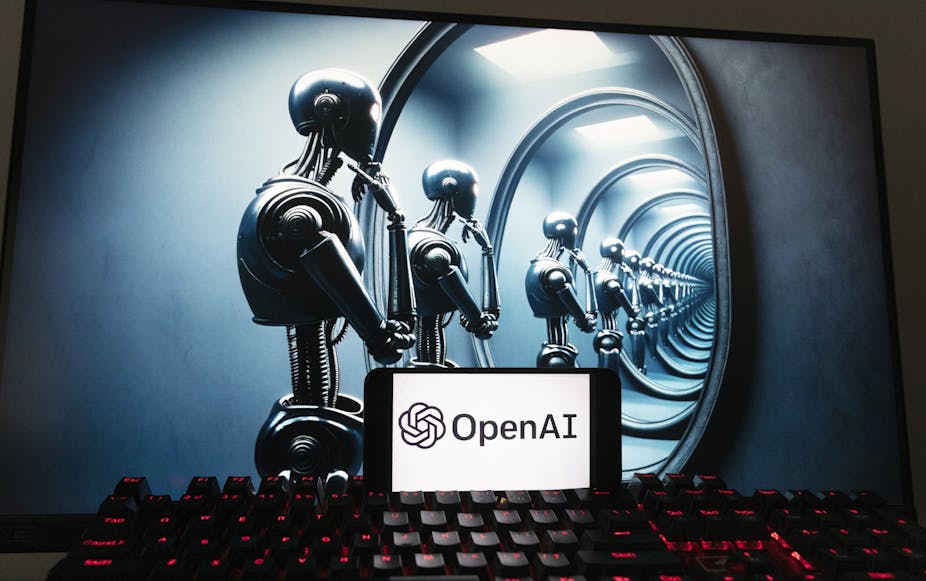
The catwalks of Paris, Milan, London, and New York have long been celebrated as the pinnacle of fashion, but as we stride confidently into 2025, a new muse on the runway is capturing the world's attention: artificial intelligence. With its pixel-perfect precision and algorithmic artistry, AI is not just a tech buzzword but a transformative force reshaping the landscape of global fashion weeks. From AI-driven design processes to immersive virtual runway experiences, technology is enhancing creativity and offering innovative ways for brands to engage with audiences.

Designing the Future: AI's Creative Edge
At the heart of this techno-fashion revolution is the AI’s ability to extend the creative boundaries of design. Brands like Prada and Gucci have begun experimenting with AI to create unique digital prints and patterns, elevating their collections with a modern twist. AI algorithms can analyze vast datasets of past collections, consumer preferences, and cultural trends to suggest designs that are both innovative and commercially viable. According to Vogue, this fusion of technology and creativity allows designers to push the envelope further, crafting pieces that resonate deeply with the digital-savvy generation.
Fashion insiders acknowledge the importance of AI in democratizing design. As Sarah Burton of Givenchy notes, "AI provides an invaluable tool for creating designs that can appeal to a diverse audience, enabling us to explore new aesthetic territories and meet the evolving tastes of our clientele."
The Virtual Runway: A New Frontier
Beyond the glitz and glamour of physical runways, AI is pioneering the rise of virtual fashion shows. The COVID-19 pandemic accelerated the adoption of digital showcases, and the trend has only intensified. Digital platforms, powered by AI, allow fashion houses to create immersive virtual experiences that transcend geographical boundaries, reaching a global audience instantaneously. For instance, Shanghai Fashion Week utilized AI-driven virtual reality to offer attendees an interactive viewing experience, enabling them to explore collections from the comfort of their homes.
These digital showcases are not just a nod to convenience but a celebration of inclusivity and accessibility. As one fashion editor from HELLO! Magazine expressed, "Virtual runways are revolutionizing how we experience fashion, breaking down barriers and allowing everyone to partake in the magic of Fashion Week."
Engaging the Audience: AI's Interactive Influence
AI's role extends beyond design and presentation; it's redefining how brands interact with their consumers. AI-powered chatbots and virtual assistants are now a staple in many fashion houses, providing personalized recommendations and styling advice. Fashion brands are leveraging these tools to foster a more interactive and engaging shopping experience. According to a report by Jing Daily, the integration of AI in customer service has significantly boosted consumer engagement and satisfaction.
Moreover, AI's ability to analyze consumer data offers brands unparalleled insights into market trends and consumer behavior. This data-driven approach enables brands to tailor their marketing strategies, ensuring that they resonate with their target audience. "AI allows us to understand our customers on a deeper level, enabling us to deliver more personalized and meaningful experiences," says Valentino's creative director, who recently launched a cultural campaign in Shanghai.
Sustainability and AI: A Green Partnership
In an era where sustainability is more than a trend but a necessity, AI is playing a crucial role in driving eco-friendly practices within the fashion industry. AI technologies are being harnessed to optimize supply chains, reduce waste, and promote sustainable sourcing. By predicting demand more accurately, brands can produce just the right amount of inventory, minimizing excess and reducing their environmental footprint.
AI is also being used to develop sustainable materials. Research is underway to create fabrics that are not only biodegradable but also durable and aesthetically pleasing. As noted in a recent article on Milan Fashion Week 2025, many designers are exploring AI-driven innovations in textile production to meet the growing demand for sustainable fashion.
The Road Ahead: Challenges and Opportunities
While AI presents a myriad of opportunities, it also poses certain challenges. One of the primary concerns is the potential loss of the human touch in design. Fashion, at its core, is an expression of human creativity and emotion. There is a delicate balance to be struck between leveraging AI’s capabilities and preserving the artistry that defines fashion.

Moreover, as AI continues to evolve, issues of data privacy and ethical considerations come to the forefront. Fashion brands must navigate these concerns carefully to maintain consumer trust and uphold ethical standards.
In conclusion, as AI continues to weave its way into the very fabric of fashion, it promises to redefine the industry in ways previously unimaginable. The fusion of technology and fashion is not merely a trend but a transformative force that is here to stay. As we look to the future, it is clear that the runway is not just a platform for showcasing clothes but a stage for technological innovation and creativity.
For fashion enthusiasts and industry insiders alike, the integration of AI in fashion weeks is a testament to the limitless possibilities of technology, offering a glimpse into a future where fashion is more inclusive, sustainable, and innovative than ever before.